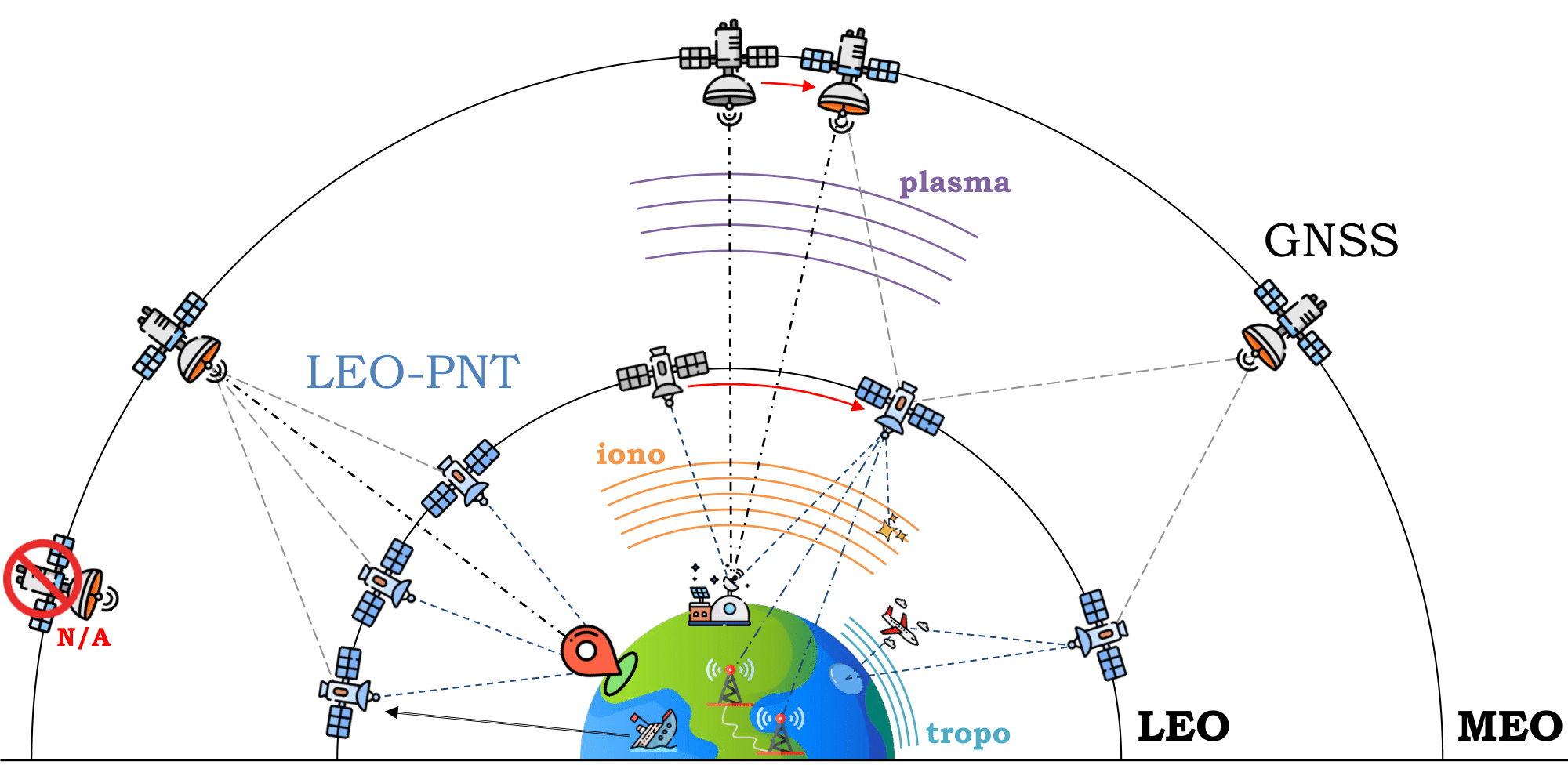Wij hebben het genoegen om de uitnodiging voor het onderstaande evenement met onze leden te delen:
On behalf of the GNSS group of the department of Geoscience and Remote Sensing at TU Delft, we would like to invite you to the following seminar (you can attend in person or online):
LEO-PNT constellation: the next revolution for GNSS “Challenges, benefits, and geoscience opportunities”
- Time/Date: 16:15-17:00 | Monday 20 March 2023
- Location: Lecture Hall C (building 23), Civil Engineering and Geosciences, TU Delft
- Livestream: https://tudelft.zoom.us/j/95904612906?pwd=MkdMUnhzOTVxQ3dHZEhTVUlZY2tldz09
- Speaker: Lotfi Massarweh
At the moment, multiple Global Navigation Satellite Systems (GNSS) enable a centimeter level precise positioning for ground-, air- and even space-based users. These are constellations made of just a few dozens of satellites, equipped with expensive on-board atomic clocks and located in Medium Earth Orbit (MEO).
The European Space Agency currently foresees a novel LEO Positioning Navigation and Timing (LEO-PNT) satnav system to complement current GNSS constellations, which are approaching their technical limits of performance. By means of a few hundreds of LEO satellites, and possibly new signals, enhanced service resilience will be provided, with an increased availability.
In addition to the benefits and challenges for LEO-PNT, in this seminar we will discuss some of the major opportunities for geoscience and remote sensing applications, as well as for autonomous navigation. The multitude of radio observations from rapidly moving LEO satellites will not only support research works on geodynamics, e.g. earthquake mechanics, volcano deformation, plate tectonics and surface loading, but it will most likely also offer new perspectives in the field of atmosphere monitoring, e.g. for real-time tomography applications.

